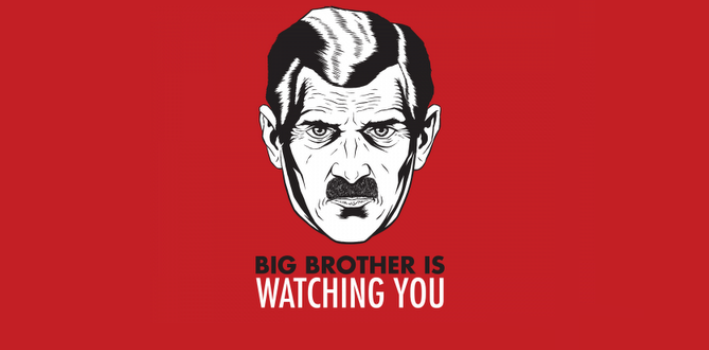
EspañolEric Arthur Blair bowed out of the Spanish Civil War with a bullet in his neck. That extraordinary conflict was crucial in defining his literary path. His work under the pseudonym George Orwell was a mixture of political and artistic goals. He devoted his career to unveiling the true nature of totalitarianism and defending a freer society that he conceived as “democratic socialism.”
Orwell’s most famous books, Animal Farm and 1984, targeted the Stalin regime. But the lingering question remains: was Orwell aware that democratic socialism was part of Stalin’s own agenda?
In an article for the Brazilian daily O Globo, Olavo de Carvalho writes about the “scissors strategy” conceived by Iosif Vissarionovich Stalin. It consisted of presenting the Fabian Society’s democratic socialism as the antagonist of communist Marxism, so that the political right was left completely out of the discussion.
It’s likely that Orwell had no idea about this. However, there are elements in his works that show he did understand how a free society could be turned into a society of slaves. In 1984, he describes a dystopia in which a single party led by an invisible, omnipotent leader only seen through propaganda screens, Big Brother, controls every aspect of people’s lives.
An intricate bureaucratic network of ministries — Education, Peace, Happiness, Truth, Thought Police — and Newspeak, the controlled language that obliterates words posing a threat to the regime and collectivist thought, keep individuals under control. The year chosen as the title of the novel was nothing less than the centennial of the foundation of Fabianism in London.
Indeed, the group of intellectuals that founded the Fabian Society in 1884 aimed to bring about socialism: but incrementally, through “democratic gradual changes, constitutional and peaceful.” For one of its forefathers, the Irish writer George Bernard Shaw, “socialism is an opinion about how national rent should be distributed, since its distribution is not a natural phenomenon: it’s a matter of management.”
The group was named after Quintus Fabius Maximus, a Roman politician and skilled general, famous for his strategies aimed at wearing down the enemy. Instead of brute force, he resorted to attrition warfare: tactical manoeuvrings to debilitate the opponent to the point of collapse. A forerunner of the British Labour Party and the welfare state, the Fabian Society achieved little by little its objective against the “disorder and abused spurred by capitalism.”
For instance, in 1895 it founded the London School of Economics and Political Science (LSE), an institution that rose to prestige in academia, harboring famous members such as Shaw himself, and Alfred Marshall. The latter had great influence over John Neville Keynes and his world-renowned son John Maynard Keynes, the economist who disseminated the idea of a state-administered economy, instrumental to strengthening a socialist state.
Socialism is institutionalized aggression against free human interaction, that is, the arbitrary use of force to organize society.
The Fabian socialist path amounted to imposing societal control through a one-party system, operated by an elite of technocrats and socialist politicians.
Returning to Orwell, his novel describes a society of slaves who have no way out of the system: the main character, Winston Smith, after being caught planning an uprising, is tortured in the Ministry of Love’s Room 101, for his own reeducation.
Against the backdrop of a completely planned top-down society, the tale shows how the individual has been subjected to purportedly collective goals through fear, ignorance, and lies. This is the essence of socialism: the institutionalized aggression against free human interaction, the arbitrary use of force to organize society.
Friedrich Hayek’s Fatal Conceit illuminates how the fact that information is dispersed throughout society and order is spontaneous rule out the socialist-planning utopia. The scheme ends up creating a parasitical ruling class living off the rest of a society that has been fooled and enslaved. While democratic means can be a less violent way of taking power, once there the socialists erect a 1984-like wall of fear, ignorance, and lies. According to Carvalho, the Fabians’ groundbreaking book was not written by group’s founders Sidney and Beatrice Webb, but rather by the Soviet government itself.
In his non-fiction essays, Orwell envisions a bottom-up socialism for the workers, the common man, unlike the socialism created by the socialist party elite. He said the former lives up to the ideals of justice and freedom, while the latter is based on social engineering and control at the hands of so-called experts and intellectuals.
With a small dose of imagination we could venture that Orwell foresaw the Stalinist scissors and so decided to leave us a warning for the future about the risks of gradualist democratic socialism, and how it mutates into tyranny all the same. In countries like Venezuela, Ecuador, Bolivia, and Argentina, we are already living our own versions of 1984, thanks to the ideas of the Fabians and Keynesians.
 Versión Español
Versión Español












